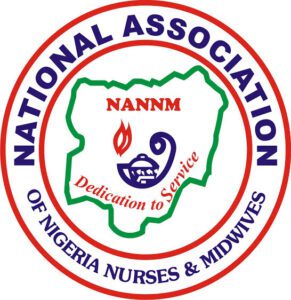


FG to ban syringe importation, encourage local production
…As NAFDAC calls for holistic approach to combating illicit imports
The Minister of State for Health, Dr Tunji Alausa has called for a total ban on the importation of medical syringes into the country to encourage local production and help to grow the nation’s economy. The Director General of the National Agency for Food and Drug Administration and Control (NAFDAC), Prof. Mojisola Adeyeye reiterated the need for a holistic approach by all the relevant agencies of government to solve the problem of substandard falsified medical devices coming into the country through the ports.
The statements were made on Thursday during the official visit to the multi-billion Naira ultra-modern Afrimedical Manufacturing and Supplies Limited Syringe factory located within Karameh Industrial City, Arepo, Ogun State, by the Minister of State for Health, Dr Tunji Alausa, Minister of Industry, Trade and Investment, Mrs Doris Nkiruka Uzo-Anite, Minister of State for Youth, and Sports Development, Mr. Ayodele Olawande, Director-General of NAFDAC, Prof. Mojisola Adeyeye, United Nations Deputy Secretary General, Dr. Mrs Amina Mohammed and the Chief Executive Officer, Nigeria Investment Promotion Commission (NIPC), Mrs Aisha Rimi.
The Health Minister reaffirmed the determination of the Federal Government to provide the necessary support to the local manufacturing sector to enhance its contribution to the Gross Domestic Product GDP.
Dr Alausa affirmed that the restructuring of syringe and needle production in Nigeria aims to guarantee the availability of high-quality products manufactured by Nigerians in the market to generate lucrative employment opportunities for Nigerians.
The minister, however, implored NAFDAC to ensure that unbridled importation of Syringe does not hamper the development of the local industry through unhealthy competition.
“Don’t give them any more authorisation to import. We need to protect the local industry through the backward integration model aimed at enhancing the local capacity,” he said.
The DG of NAFDAC, Prof. Mojisola Adeyeye, disclosed that the Agency had put an end to granting import authorisation to importers including the international partners.
According to her, the National Primary Healthcare Development Agency (NPHCDA) has also been directed to patronise the local manufacturers of syringes to provide employment opportunities to Nigerians through the expansion of operations of the Nigeria manufacturing companies. She added that the National Primary Health Agency was given the last import order in December 2023 with the instruction that they should begin to source from the local manufacturers thereafter.
She further explained that NAFDAC has halted syringe imports to promote locally made syringes. This suspension applies even to syringes previously imported by NAFDAC’s international partners. The goal is to shift the focus towards supporting domestic syringe manufacturing.
“However, for the local manufacturers, we are doing hand-holding with our Syringe companies. Hand-holding, meaning we are working with them by correcting whatever we found wrong or inappropriate in their operations, adding that this initiative has started yielding positive dividends as the World Health Organisation WHO recently requested for names of the three syringe manufacturing companies in Nigeria to do business with.”
She disclosed that the names were supplied to WHO and they have been contacted for guidance toward prequalification and eventual access of the products for use.
Prof. Adeyeye however, advocated for a holistic approach to combating the incidence of importation of Substandard Falsified medical devices into the country. She disclosed that some medical devices still come into the country with the aid of compromised officials at the ports. According to her, the government had already put high tariffs on the importation of syringes to discourage importation.
She, nevertheless, expressed regret that the system in the ports negates that policy.
“That is the problem. It’s going to be a holistic government approach to tackle the problem. It’s not something that only NAFDAC, SON, or Customs can do. It must be all-embracing.”
The NAFDAC boss however noted that the locally manufactured syringes may be costlier, she quickly added that once the local industry starts to have volume the price will come down.
She also urged the government to reduce the import tariff on critical raw materials and equipment used for local production, adding that they should be given zero tariffs for a limited time moratorium.
Prof Adeyeye said that NAFDAC has the power to create a ceiling on importation, adding that the three companies in Nigeria can produce syringes that will satisfy the local demand and still export.
The Minister further requested the NAFDAC DG to engage all the relevant agencies to achieve the desired government policy thrust as he reaffirmed President Bola Tinubu’s commitment to remove barriers impeding industrialisation and manufacturing in Nigeria.
The chairman of Mikano International, the parent company of Afrimedical Manufacturing and Supplies Limited, Mr. Mofid Karameh told the visiting top government officials and UN Deputy Secretary General that his company is poised to revolutionise the landscape with its aim to restore Nigeria as the premier hub in Africa.
He said the company boasts of an internationally accredited factory with an annual production capacity of 1.8 billion syringes, employing cutting-edge E-beam sterilisation technology.
Founded in 2019, he said Afrimedical has emerged as a prominent provider of medical solutions, delivering products such as 2ml, 3ml, 5ml & 10ml sterile hypodermic syringes, 0.5 ml auto-disable immunization syringes, face masks, and sanitizing tunnels.
Afrimedical Manufacturing and Supplies Limited, a division of Mikano International Limited manufactures hypodermic syringes and other healthcare products, providing solutions to Africa’s health needs and saving lives. Tailored to protect medical institutions and professionals in Nigeria and throughout Africa from virus-related infections, Mr. Karameh said these solutions showcase Afrimedical’s commitment to healthcare safety.
The Managing Director of Afrimedical, Mr. Akin Oyediran emphasised the company’s plans to manufacture high-quality syringes not only for Nigeria but also for some neighbouring countries. He added that the company uses 30 percent less plastic with high-quality medical-grade materials in its production.
He expressed gratitude for the Federal Government’s support, noting that the initiative to prohibit syringe imports will diminish the prevalence of substandard products in the Nigerian market and establish a conducive environment for local manufacturers in the pharmaceutical sector to flourish.



